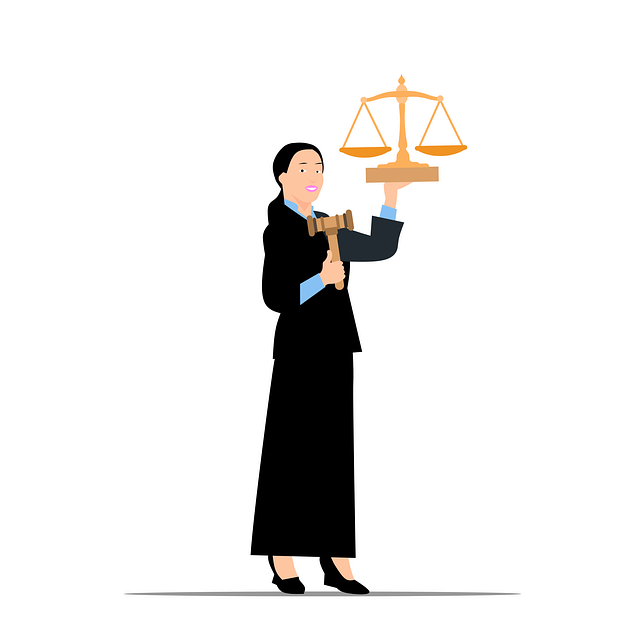
Category: Greenwood Village Colorado Probate and Trusts
Greenwood Village Colorado Probate and Trusts: A Comprehensive Overview
Introduction
Welcome to an in-depth exploration of the intricate world of Greenwood Village Colorado Probate and Trusts, a legal framework that plays a pivotal role in managing and transferring assets, primarily in the context of estate planning. This article aims to unravel the complexities of this system, highlighting its historical foundations, global reach, economic implications, technological adaptations, regulatory landscape, and the challenges it encounters. By delving into these aspects, we will provide readers with a comprehensive understanding of Greenwood Village Colorado Probate and Trusts, its role in modern society, and its potential future trajectory.
Understanding Greenwood Village Colorado Probate and Trusts: Unraveling the Basics
Definition: Greenwood Village Colorado Probate and Trusts refers to the legal mechanisms and processes involved in the administration and distribution of a person’s estate (assets and liabilities) after their death. It encompasses a range of legal tools, including wills, trusts, and various administrative procedures, designed to ensure that an individual’s wishes are respected and their assets are managed efficiently.
Core Components:
- Will: A legal document expressing a person’s wishes regarding the distribution of their property upon their death. It names executors who are responsible for carrying out these instructions.
- Trust: A legal agreement where a person (grantor) transfers asset ownership to a trustee, who manages and distributes the assets according to specified terms for beneficiaries. Trusts can be revocable or irrevocable.
- Probate: The legal process of administering and settling an estate, including identifying and valuing assets, paying debts and taxes, and distributing the remaining property as directed by the will or trust.
- Executors/Trustees: Individuals appointed to carry out the provisions of a will or manage a trust, ensuring compliance with legal requirements and the wishes of the grantor.
Historical Context: The concept of probate has deep roots in English common law, which was later adopted and adapted by many American jurisdictions, including Colorado. Over time, the system has evolved to address changing social and economic needs, incorporating modern principles of estate planning and asset protection.
Significance: Greenwood Village Colorado Probate and Trusts is essential for several reasons:
- Estate Planning: It provides individuals with a means to control the distribution of their assets, minimize tax liabilities, and ensure their wishes are respected after their passing.
- Asset Protection: Trusts offer a way to shield assets from creditors, lawsuits, and potential financial claims, providing long-term asset preservation.
- Tax Efficiency: Proper planning through wills and trusts can help minimize estate taxes, ensuring more of an individual’s wealth is transferred to intended beneficiaries.
- Administrative Convenience: Professional administration of estates ensures that legal formalities are correctly followed, simplifying a potentially complex process for grieving families.
Global Impact and Trends
International Influence: Greenwood Village Colorado Probate and Trusts has gained international recognition as a model for efficient estate administration and asset protection. Many countries have adopted similar principles, adapting them to fit their legal systems and cultural contexts. For example:
- Europe: Several European nations, including the UK, Germany, and France, have integrated probate-like systems into their civil law traditions, offering flexible options for estate planning and asset distribution.
- Asia: Countries like Japan and South Korea have implemented trust-based systems, drawing inspiration from the U.S. model while incorporating local cultural norms.
- Emerging Markets: Brazil, Mexico, and certain African nations are witnessing an increase in probate and trust activities, driven by growing wealth accumulation and a desire for asset protection.
Key Trends Shaping the Trajectory:
- Digital Transformation: The adoption of digital technologies is revolutionizing probate processes worldwide. Online will and trust preparation, electronic filing, and secure document management are becoming common practices.
- Cross-Border Estate Planning: With globalized economies, individuals are increasingly seeking international estate planning strategies to optimize asset protection and tax efficiency across borders.
- Trusts as a Default Option: There is a growing trend to promote trust-based systems as a more efficient and flexible alternative to traditional probate, especially in jurisdictions with complex legal frameworks.
- Focus on Privacy and Security: Data privacy concerns have led to enhanced security measures in digital probate systems, ensuring the confidentiality of sensitive estate information.
Economic Considerations
Market Dynamics: The Greenwood Village Colorado Probate and Trusts sector is influenced by various economic factors:
- Wealth Accumulation: Rising personal wealth, particularly among high-net-worth individuals, drives the demand for advanced estate planning tools and asset protection strategies.
- Tax Policies: Changes in inheritance and estate taxes impact the decisions of individuals and families regarding wills, trusts, and other estate planning vehicles.
- Investment Patterns: Asset allocation and investment choices play a role in estate planning, as individuals seek to protect and grow their investments for future generations.
Role in Economic Systems:
- Estate Planning Services: The industry supports professional services, including legal counsel, tax advice, and asset management, contributing to economic activity and job creation.
- Tax Revenue: Probate and trust administration generates significant tax revenue for governments, as estates are assessed and taxes collected upon distribution.
- Wealth Transfer: Efficient probate processes facilitate the transfer of wealth across generations, ensuring that family assets remain within the family.
Technological Adaptations
Digital Evolution: Technology has had a profound impact on Greenwood Village Colorado Probate and Trusts:
- Online Will Preparation: Many states now offer online platforms for individuals to create simple wills, providing convenience and accessibility.
- Blockchain and Smart Contracts: Emerging technologies like blockchain are being explored for secure and transparent estate management, allowing for automated execution of trust provisions.
- Artificial Intelligence (AI): AI can assist in analyzing complex estate structures, identifying potential risks, and suggesting optimized strategies.
- Mobile Applications: Apps designed for estate planning offer users a centralized platform to organize documents, communicate with professionals, and track the progress of their plans.
Benefits of Technological Integration:
- Efficiency: Digital systems streamline processes, reducing processing time and administrative costs.
- Accessibility: Online tools make estate planning more accessible to a broader range of individuals, including those in remote areas.
- Security: Blockchain technology ensures data integrity and security, protecting sensitive information.
- Personalization: AI-driven tools can provide tailored recommendations based on individual circumstances.
Regulatory Landscape
Legal Frameworks: The regulatory environment governing Greenwood Village Colorado Probate and Trusts varies across jurisdictions in the U.S. Each state has its own set of laws and regulations, offering flexibility but also complexity for practitioners and individuals seeking to navigate these systems.
Key Considerations:
- Estate Tax Laws: State-level estate tax rates and exemptions significantly impact probate and trust planning. Some states have abolished estate taxes, while others maintain complex tax structures.
- Judicial Supervision: In some jurisdictions, probate proceedings are subject to judicial oversight, ensuring fairness and compliance with legal standards.
- Professional Licensing: The practice of law, including estate planning and probate, is regulated, requiring licensed attorneys to handle related matters.
- Privacy Laws: Data privacy regulations govern how personal and financial information can be collected, stored, and shared during probate processes.
Challenges and Controversies
Common Issues: Despite its well-established foundations, the Greenwood Village Colorado Probate and Trusts system encounters several challenges:
- Complexity: The legal intricacies of wills, trusts, and related procedures can be overwhelming for laypeople, leading to errors in planning.
- Costs: Estate administration fees, including attorney and professional costs, can be substantial, especially for larger estates.
- Time Delays: Probate proceedings can take months or even years to complete, causing uncertainty for beneficiaries.
- Tax Planning: Navigating complex tax laws related to estate transfers can be challenging, requiring specialized knowledge.
Controversies and Debates:
- Asset Protection Strategies: While trusts offer valuable protection, there are debates about their potential misuse for tax evasion or asset hiding, leading to regulatory scrutiny.
- Estate Tax Reforms: Proposals to simplify or eliminate estate taxes have sparked discussions on the impact on wealth transfer and government revenue.
- Digital Privacy Concerns: As digital probate systems evolve, ensuring data privacy and security remains a critical issue, requiring robust cybersecurity measures.
Looking Ahead: Future Trends
The future of Greenwood Village Colorado Probate and Trusts is likely to be shaped by several emerging trends:
- Simplification of Legal Processes: There is a growing push for streamlined legal procedures, potentially through technology, to make estate planning more accessible and less intimidating.
- Global Harmonization: International cooperation may lead to greater harmonization of probate laws, facilitating cross-border asset protection and estate administration.
- AI-Driven Personalized Planning: Artificial intelligence will play a bigger role in providing customized estate planning advice, adapting to individual needs and circumstances.
- Blockchain for Estate Management: Blockchain technology could revolutionize estate management by offering secure, transparent, and efficient record-keeping for assets and transactions.
- Focus on Privacy and Cybersecurity: With increasing digitalization, ensuring data privacy and cybersecurity will remain paramount, driving innovation in secure digital probate systems.
Conclusion
Greenwood Village Colorado Probate and Trusts is a complex yet essential aspect of modern legal systems, playing a pivotal role in personal asset management and wealth transfer. By understanding its historical foundations, global reach, economic implications, technological adaptations, and regulatory frameworks, we can appreciate the intricate web of laws and practices that shape this field. As technology advances and societal needs evolve, the system will continue to adapt, ensuring that individuals have the tools they need to protect their assets, plan for the future, and pass on their legacy with confidence.









